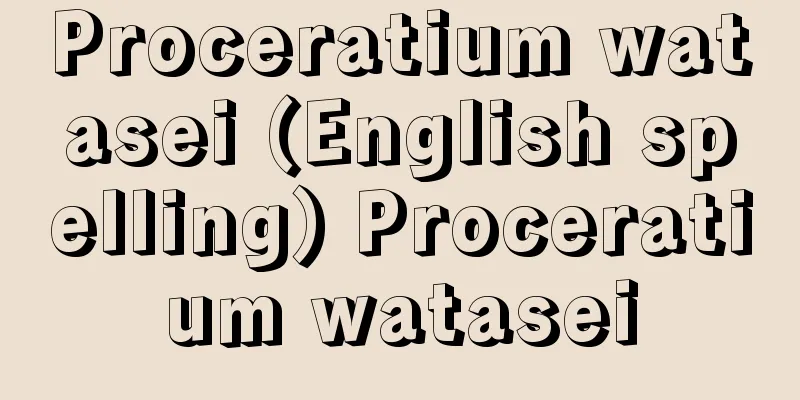Selected coins - Erizeni

|
When giving and receiving currency, it means to select good coins and reject bad ones. It can also refer to the selected good coins (seisen). It is also called "erisen" or "sensen". In Japan, after the Imperial Twelve Sen coins, official minting of coins was not carried out, and the twelve sen coins, Tang, Song, Yuan, and Ming coins that were imported from the continent, and privately minted coins were in circulation. These coins were worth one copper coin per mon, but their quality varied depending on the coin. For this reason, during the Muromachi period, when commerce flourished, it became common to select good coins when giving and receiving currency. The Muromachi Shogunate brought coins acquired in the Ming Dynasty through the Kango trade to Japan as one of its financial sources, and the act of selecting coins became an obstacle to circulating bad coins that were in circulation in the Ming Dynasty in Japan as good coins. Since the selection of coins was also an obstacle to the smooth flow of commercial transactions, in 1500 (Meiō 9), the shogunate prohibited the refusal to accept coins other than those privately minted in Japan. This is known as the Selection of Coins Order. After this, the shogunate issued numerous laws regarding selection of coins up until 1542 (Tenbun 11), although the conditions varied. Also, the Ouchi clan, who had deep ties to the tally trade, issued an order in 1485 (Bunkai 17) earlier than the shogunate, prohibiting the refusal to accept Yongle coins and Xuande coins of the Ming dynasty. Other famous selection of coin orders were issued by the Azai clan of Omi, the Hojo clan of Sagami, the Takeda clan of Kai, and Oda Nobunaga, among the feudal lords of the Warring States period, and there are also remains of Tofuku-ji and Kofuku-ji temples. Some scholars say that prices rose as a result of the selection of coins, but prices generally fell during the late Muromachi period, and in this respect, it can be said that Gresham's Law, which states that when both good and bad coins are in circulation with the same indicated value, bad coins drive out good coins, and the good coins are hoarded, melted down, exported, or scrapped, disappearing from the market and causing prices to rise, did not apply. Selection of coins came to an end in the early Edo period, when the shogunate minted and began circulating the Kan'ei Tsuho coin. [Momose Kesao] [Reference] |Source: Shogakukan Encyclopedia Nipponica About Encyclopedia Nipponica Information | Legend |
|
貨幣を授受するとき、良貨を撰(えら)び、悪貨を排除すること。またその撰ばれた良銭(精銭(せいせん))をさすこともある。「えりせん」「せんせん」ともいう。日本では、皇朝十二銭ののち、貨幣の官鋳(かんちゅう)を行わず、十二銭と、大陸から流入してきた唐(とう)、宋(そう)、元(げん)、明(みん)の銭貨および私鋳銭(しちゅうせん)が流通していた。これら銭貨は、銅銭1枚が1文とされるものであったが、その品質はものにより差異があった。このため、商業が盛んになった室町時代には、貨幣授受にあたり、良銭を撰び取ることが一般化した。勘合貿易により明で獲得した貨幣を日本に搬入して財源の一としていた室町幕府は、明で流通していた悪銭を良銭なみに日本で流通させるためには、撰銭行為がその障害となった。また撰銭は商業取引の円滑化の障害でもあったので、1500年(明応9)幕府は、日本私鋳銭以外の銭の請取り拒否を禁止した。これがいわゆる撰銭令である。こののち幕府は、1542年(天文11)まで、条件は異なっているが、たびたび撰銭に関する法令を発布している。また勘合貿易と関係の深かった大内氏は、幕府よりも早く1485年(文明17)明の永楽銭(えいらくせん)、宣徳銭(せんとくせん)を請け取らないことを禁止する法令を出している。撰銭令は、このほか戦国大名では、近江(おうみ)の浅井氏、相模(さがみ)の北条氏、甲斐(かい)の武田氏、織田信長のものが名高く、寺院では東福寺、興福寺のものなどが残っている。 撰銭の結果、物価が騰貴したという学者もあるが、室町後期は総じて物価は下落しており、この点、善悪両貨が同一表示価値をもって流通するとき、悪貨は良貨を駆逐し、良貨は蓄蔵、融解、輸出、削竊(さくせつ)され、市場から姿を消し、物価騰貴を引き起こすというグレシャムの法則が適用される状態ではなかったといえる。撰銭は江戸初期、幕府により寛永通宝(かんえいつうほう)が鋳造流通させられるに及んで終了した。 [百瀬今朝雄] [参照項目] |出典 小学館 日本大百科全書(ニッポニカ)日本大百科全書(ニッポニカ)について 情報 | 凡例 |
<<: Selection of Coins - Eliza
Recommend
al-Aghani (English spelling)
...However, today, the prevailing view is that it...
Skikda (English spelling)
Formerly called Philippeville, it is a port city o...
Kubogai (Kubo shell) - Kubogai (English spelling) Chlorostoma argyrostoma
A snail shell of the family Celastridae (illustrat...
Santanka (Santanka) - Santanka
Also known as Ixora. An evergreen shrub of the Rub...
Olympic Competitor
…The city designated as an Olympic City will, in ...
North Munda Languages
... It is divided into three groups, North, South...
Shimazu Sadahisa
Year of death: Joji 2/Shohei 18.7.3 (1363.8.12) Ye...
Himatione sanguinea (English spelling) Himationesanguinea
... Hawaiian honeycreepers prefer tropical rainfo...
Ebert, Friedrich
Born: February 4, 1871 in Heidelberg Died February...
Gengo Ohtaka
1672-1703 A samurai from the early Edo period. Bo...
brucine
... The seeds of the pine tree are called vomica,...
Death of a Hero
…These works were later collected into the Collec...
Kawaguchi Onao
Year of death: November 26, 1845 (December 24, 184...
Armor - Armor
A type of armor. Also written as 甲・輔. It was worn...
Gibbon, Edward
Born: 8 May 1737, Putney, Surrey [Died] January 16...









